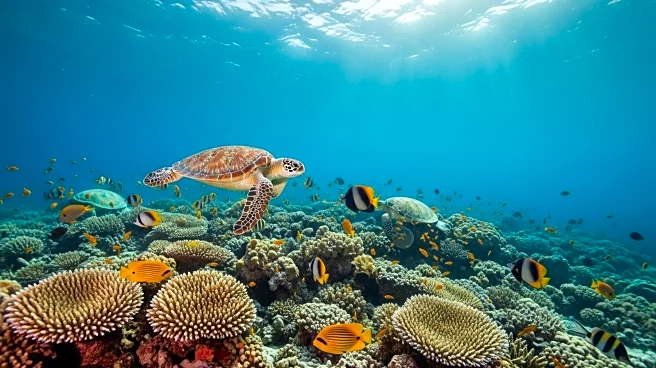What's Happening?
Greenpeace is calling for investors to boycott Manuka Resources, an Australian-owned company listing on the New Zealand stock exchange. The company, through its subsidiary Trans-Tasman Resources (TTR), plans to open a seabed mine off the coast of Taranaki. Greenpeace argues that the project poses significant risks to ocean health and Indigenous rights, as it threatens habitats for blue whales, critically endangered dolphins, and seabirds. The project has faced opposition from local communities, including iwi, fisherfolk, and environmentalists, and has struggled to gain legal approval.
Why It's Important?
The call for a boycott by Greenpeace highlights the growing tension between economic development and environmental conservation. The seabed mining project represents a significant environmental risk, potentially causing irreversible damage to marine ecosystems. The opposition from local communities and environmental groups underscores the importance of considering Indigenous rights and environmental sustainability in economic projects. The situation also reflects broader global debates about the ethical implications of resource extraction and the responsibility of investors to prioritize sustainable practices.
What's Next?
Greenpeace and local communities are expected to continue their opposition to the seabed mining project, potentially leading to legal challenges and public protests. The outcome of the Fast Track Approvals Bill application will be crucial in determining the project's future. Investors may face increased scrutiny and pressure to divest from projects perceived as environmentally harmful. The situation could influence future regulatory decisions and investor behavior regarding similar projects.
Beyond the Headlines
The controversy surrounding the seabed mining project raises questions about the role of corporate responsibility and ethical investment in addressing environmental challenges. It also highlights the need for robust legal frameworks to protect vulnerable ecosystems and Indigenous communities from potentially harmful industrial activities. The case may prompt broader discussions about sustainable development and the balance between economic growth and environmental stewardship.










